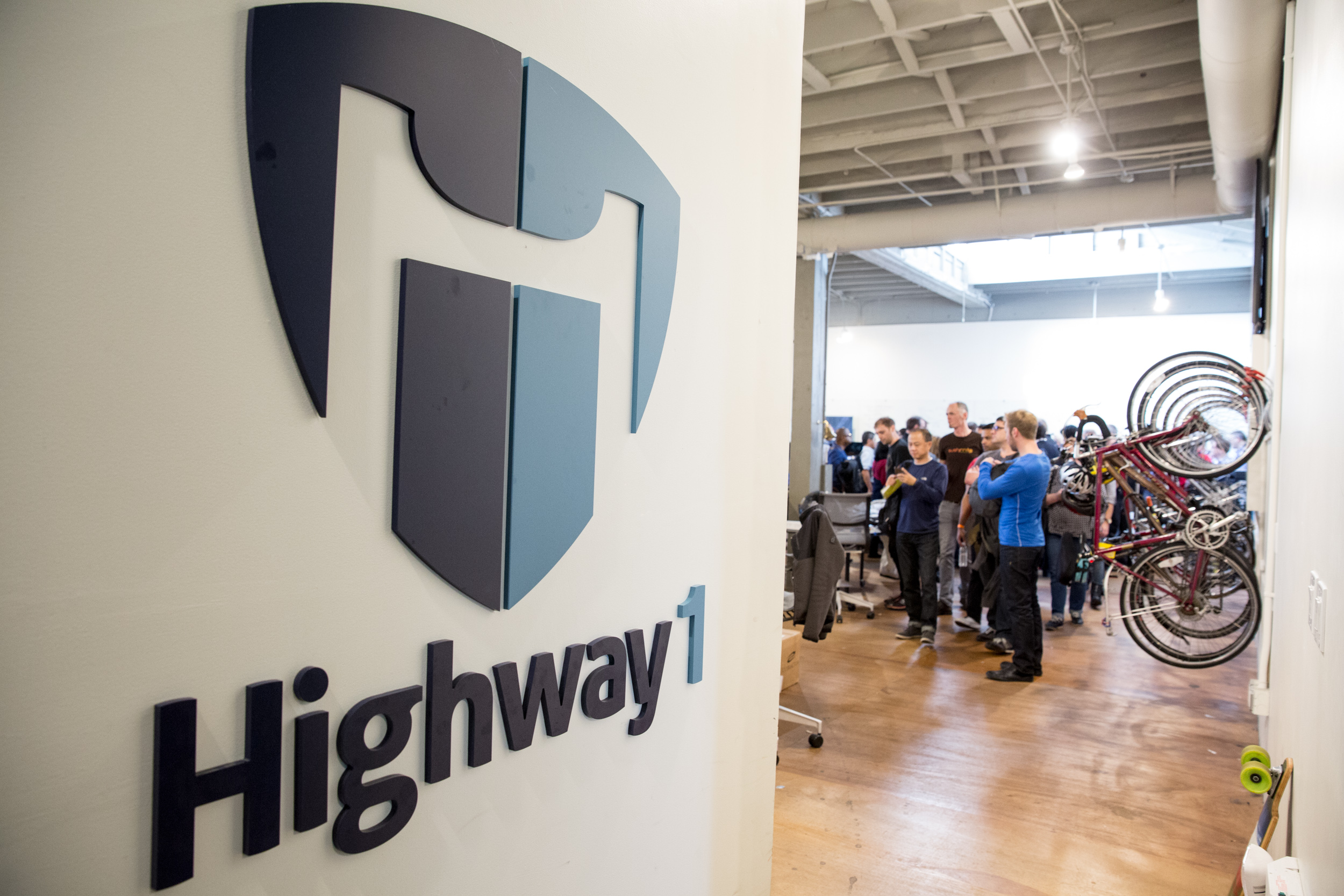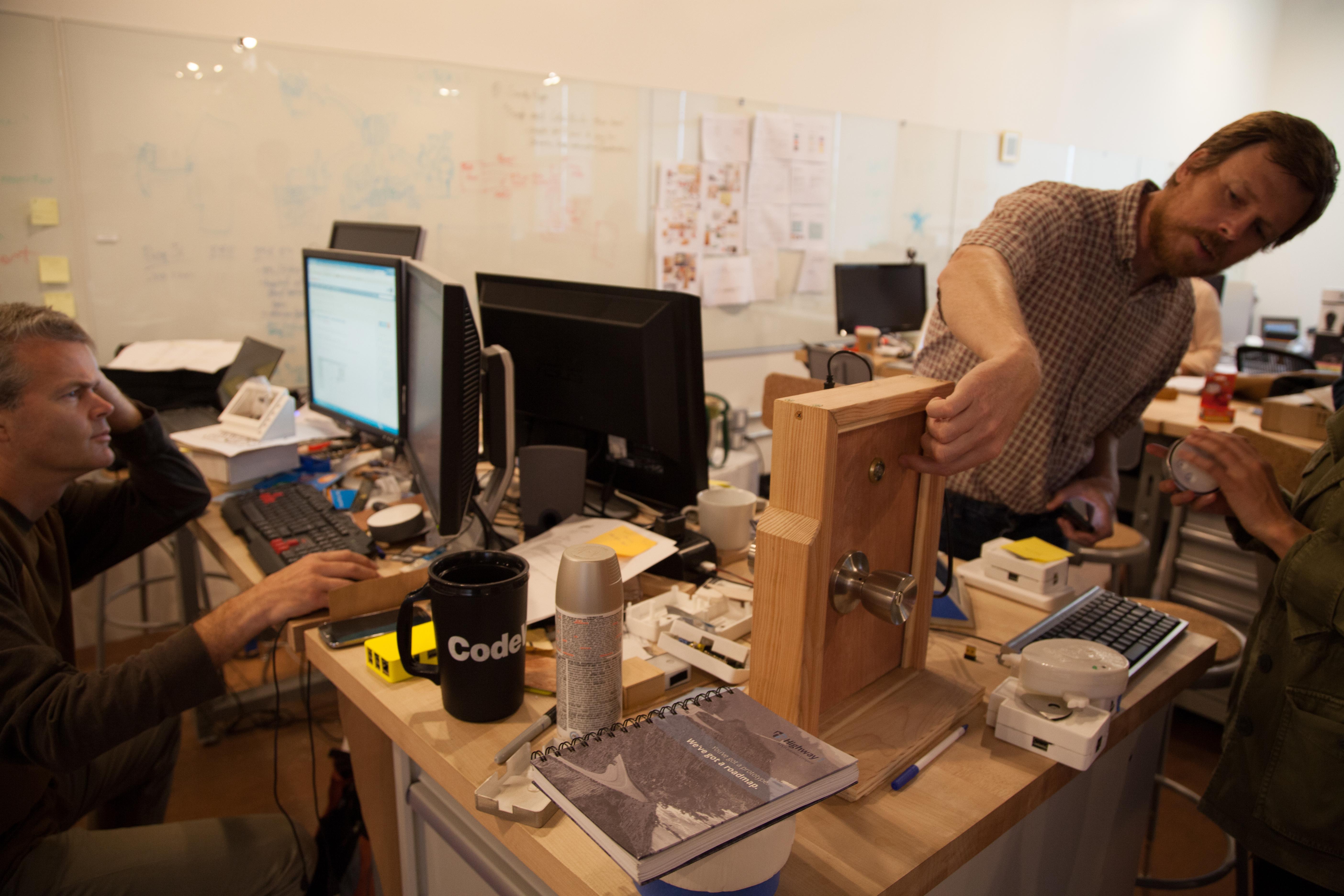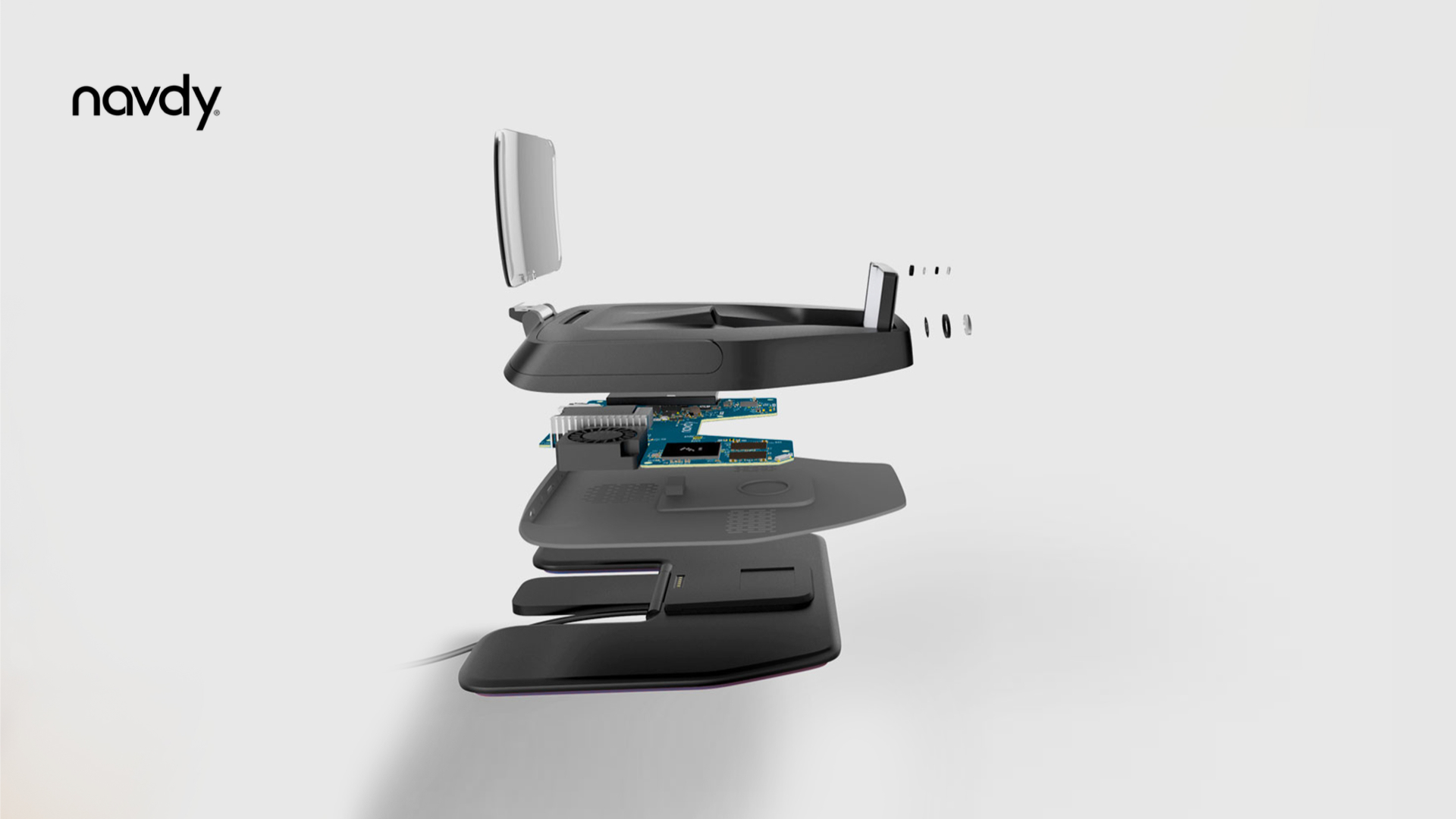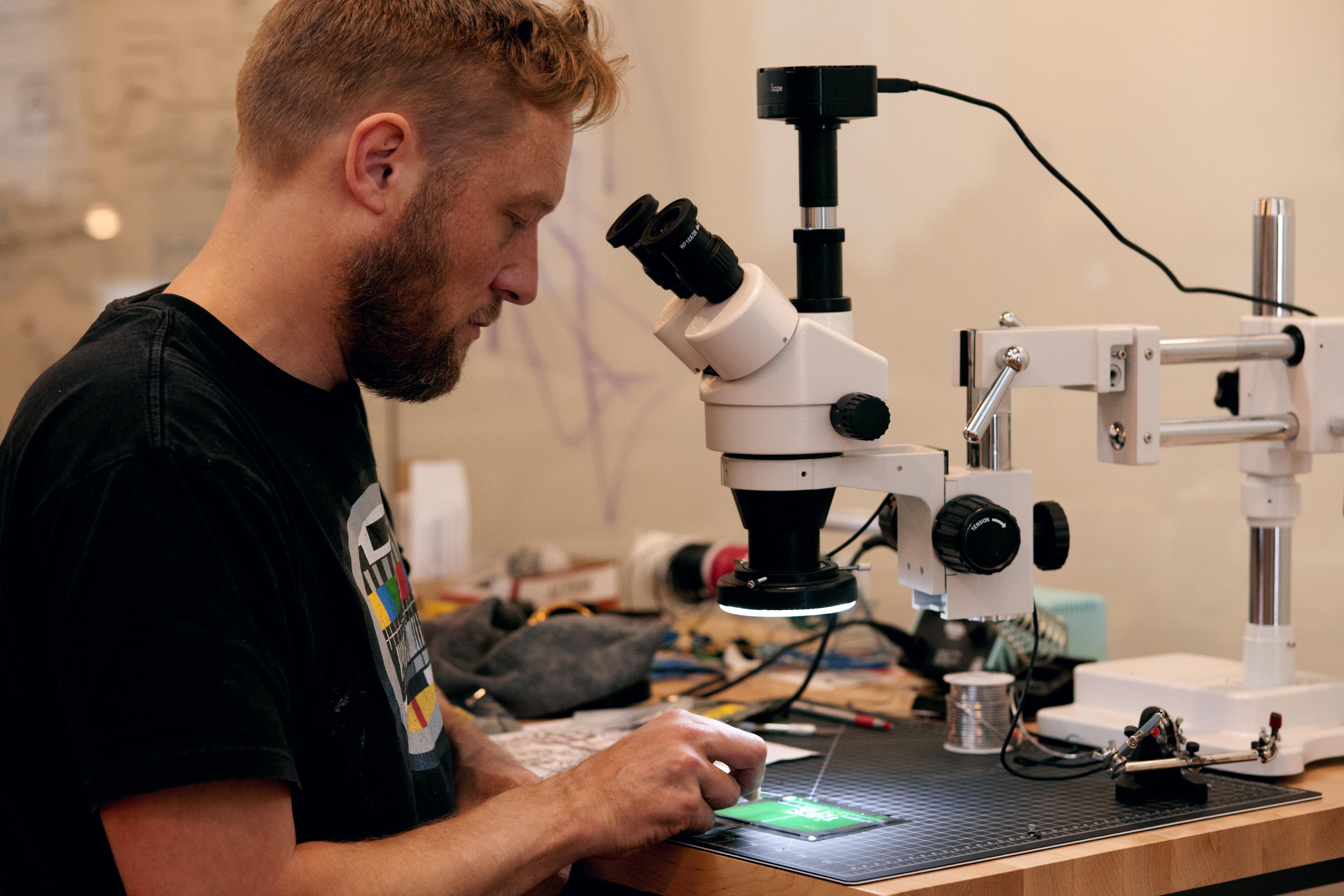PCH’s successful hardware accelerator program, Highway1, was born when Liam Casey, founder and CEO of PCH, saw that some of the best new hardware ideas were coming from first-time entrepreneurs, not large established companies.
PCH had historically designed custom manufacturing solutions for Fortune 500s, but Casey wanted to work with hardware startups who needed more support to get from concept to product. This is because startups have incredible energy and do things differently.
“PCH had to transform as a company to deal with a new type of customer,” Marcus Gosling, Design Lead at Highway1 said. “We encouraged startups to come to us for help, and we quickly realized that we needed a formal program to help them evolve and become companies that could scale into businesses.”
The program is a hit. Hardware that’s come out of Highway1 has been featured in magazines like Wired and on blogs like TechCrunch and Engadget. Many Highway1 alums are shipping and selling their products, including at such places as the Apple Store.
A reality show on Syfy featuring Highway1 is in the works too. The show, set to start filming early this year, will follow startups from both Highway1 and renowned software accelerator 500 Startups.
Amidst interviewing and selecting the fourth class of hardware startups, Gosling was kind enough to sit down and talk in detail about the program, his advice to new CEOs, the program’s collaboration with ThinkApps, and what it takes to make a good prototype into a great product.
Marcus Gosling, Design Lead at Highway1, speaking last year at The Lean Startup Conference
Can you describe how the hardware startup accelerator is structured?
Sure. We tend to look for startups that are pretty far along in the process, where there is already a working prototype, and they can show that the product is valuable to people. Ideally they’ve done field trials with potential consumers, learned from their feedback and iterated. So they’re at the point where it’s clear that their product has a market, and there will be demand.
In week one of the course, we have a meeting with each of the startups about where they want to be by “Demo Day” 16 weeks after they start the program. A lot of the conversation in those early meetings is about helping calibrate what’s aggressive, yet achievable. We want all our startups to get maximum value from our program and to become more valuable and fundable hardware companies.
Once we have established goals together, the rest of the program is focused on supporting each startup’s product development. We have three on-site engineers, a fully equipped prototying workshop, and a deep bench of mentors across industries and disciplines.
A team of PCH manufacturing engineers travels from China to consult with our startups, and in turn, we take all our startups to Shenzhen for 10 days to expose them to manufacturing at scale.
Another important track for the startups is to develop their funding story. They need to be able to explain their product clearly, what customers will love about it, and what’s in it for potential investors.
I had no idea that accelerators were so hands-on.
Our program is pretty unique. It’s more of a hothouse than survival of the fittest.
Once a startup is accepted we work hard to help them be successful. We have on-site engineers, workshops, 3D printers, laser cutters; we bring in mentors and experts. At any one time we have 10 companies or more working on-site in their company space with their prototypes, whiteboards, wires and parts. It’s like a movie about crackpot inventors – with all the excitement and passion.
What is the China connection?
The visiting engineering team from China has years of on-the-ground experience setting up production lines, reviewing and driving up quality, making sure that everything is working well at scale. It’s just amazing for the entrepreneurs. These are exceptional engineers; maybe they’ve done engineering at Stanford or elsewhere, and they know their way around all sorts of complicated technologies, but there’s nothing like getting to talk with somebody whose whole life is about solving the nitty-gritty, in-the-trenches challenges of manufacturing.
To have them look at your product and say, “Oh yeah. That split line needs to be raised up two millimeters and you’ll have fewer problems with the tool wearing out.” This is stuff you often can’t read in books; it’s hard-won experience.
The look on the faces of the entrepreneurs when they come out of those sessions is one of appreciation and awe. They’ve just had questions they’ve been wondering about for months answered in 10 seconds — or things that they were quite confident about blown up, and now they’ve got work to do. Meeting with experienced software and hardware engineers early in the process is extremely valuable.
Going on from that we spend a week on intense pitch practice, helping them tell their story in a compelling way. Then there are a couple of weeks of preparing the required prototype to go over to China. When they come back from China, it’s heads down until Demo Day. At that point we’re focused on helping each startup get to their goals, and each startup’s goals are different. We supplement this ongoing work with engineering and design resources. As they get closer to Demo Day, there’s another week of intense pitch practice.
And then Demo Day? What happens there?
Demo Day is held in our event space at PCH in Potrero Hill. We invite about 200 investors, press and VIPs to the show. Each startup gets four minutes on stage to pitch their product, show it working. After that there’s a kind of science fair, if you like, where investors and press walk around and talk to each of the startups and get hands-on demos. And then begins the process of swapping business cards and scheduling investor meetings.
They still have work to do after they graduate from Highway1, but they are in a good position to seek investment because they know much more about the manufacturing process and their supply chain. They are better able to cost out the product and set realistic goals. This can give investors greater confidence in the project, and reduce the risk of investment.
Is there advice you find yourself giving over and over again?
I would advise hardware entrepreneurs to get their prototype into people’s hands as early as possible so they can get feedback. Even if the product is rough. If you are not feeling embarrassed or vulnerable at least 50% of the time, then you are not learning quickly enough.
I would also say that design should be a critical part of the initial development phase. Don’t leave the intangibles like brand or user experience until later. These are some of the most visible aspects of your product to your customers, and they should drive the project, not be an afterthought.
What’s the biggest challenge of running a hardware startup accelerator like Highway1?
I would say it’s making sure that every startup is getting the attention they need equally. We make sure we talk to someone from each startup on almost a daily basis. Myself and the engineers run a two-hour meeting each week where we review all the companies at Highway1. We discuss how we think they are doing. For example, one of the engineers might say he thinks a startup needs some help around design, and I’ll make a note to go and talk to them. And if I think there’s something related to engineering or fundraising, I’ll bring that to the right person on our team.
Can you talk about the partnership between ThinkApps and Highway1? There’s been some collaboration on a few projects now, like Wink Labs and Palate, right?
So, the relationship with ThinkApps is part of an investment we’ve made in building out a network of high-quality consultants and partners for our entrepreneurs. We don’t have the internal resources to provide everything the startups need, such as application development. So we partner to fill gaps.
We’ve been working to build a community of industrial design firms, branding firms, engineering firms, app development firms. When we look for these partners we’re looking to connect with companies that are excited about what’s happening in hardware and excited to work with entrepreneurs.
Can you tell us about some of the products that have recently come out of Highway1?
There’s Drop, a connected kitchen scale that works with an iPad. It went from a prototype to the Apple store in just over a year. They made incredible use of the program and were shipping product to customers just nine months after leaving the program.
Another company is Ringly, a smart ring that connects to your phone and notifies you about important messages. So, say you are expecting an important call, or have a meeting coming up, these will trigger notifications and you’ll get a little buzz and a little colored light that only you can see because of where it’s located on the ring. It means you don’t have to have your phone out on the table and you don’t have to keep pulling it out to check. You can be connected without being enslaved. Christina Mercando, Ringly’s CEO, is catering to a style and fashion conscious female consumer.
And then, Navdy with heads-up technology, which projects information in the car windshield, allowing you to get messages without taking your eyes off the road. You can get navigation help, receive text messages — you can even answer or ignore calls by swiping your finger in the air. It puts the transparent screen in your field of view, at just the right focus, so you don’t have to re-focus your eyes away from the road.
There’s also Podo, which is a small camera that you can stick anywhere, and control with your phone. It allows you to do cool things like set up creative camera shots from different angles or do time-lapse photography and send it to your phone. It will be shipping later this year.
What is the importance of design at Highway1?
PCH makes, packages and ships products for customers that care passionately about consumer experience and brand. One of the things we look for in startups that apply to Highway1 are strong values around quality and user experience.
During the program we support great design by connecting our startups with local design agencies and by helping them engineer their product for scale in parallel with the design process. Our startups have had fantastic results working with local design firms such as Herbst Produkt, Ammunition, Primer Product, and more.
Especially for products aimed at a consumer market, investors need to see that a startup understands and cares about good design. Design is also a very useful tool for introducing and making users comfortable with new technologies.
Would you say there’s a difference in growth strategies for hardware vs. software?
Hardware development is hugely different from software. There are so many different areas of expertise involved in developing and manufacturing a real object. What can and can’t be made is highly constrained and scaling up production as you start to sell is also challenging.
But even if you have a great product, the key factor to growth is distribution. And this is the most difficult step for hardware companies – how to distribute given today’s retail channels. This puts enormous financial burdens on companies to maintain inventory levels in the channel.
As a company, PCH has worked hard to help forge new retail terms that are startup friendly and will lead to more products coming to market. The best way to ensure the growth of hardware is to promote new retail distribution channels that don’t require large inventory in the channel.
What’s next for Highway1?
Well, it’s been an amazing year. We welcomed our first startups almost 18 months ago and are just about to start our fourth session. We have outgrown our first location in the Mission and are currently putting the finishing touches on our new, larger space in Potrero Hill. We’re almost fully moved in.
On top of all this we have the TV show. There will be a camera crew camped out with three of our startups for the next four months, documenting the highs and lows of hardware entrepreneurship.
Another important change is our move to rolling admissions. Rather than a twice yearly intake of startups we will be reviewing and accepting applications on an ongoing basis. This allows us to work with startups when they need our help.
What is your message to hardware entrepreneurs reading this post?
Apply! We are always looking for great startups, and we select teams from a wide variety of backgrounds and nationalities. You can visit the Highway1 site to learn more or drop us an email. We would love to hear from you.
All images were provided by Highway1







